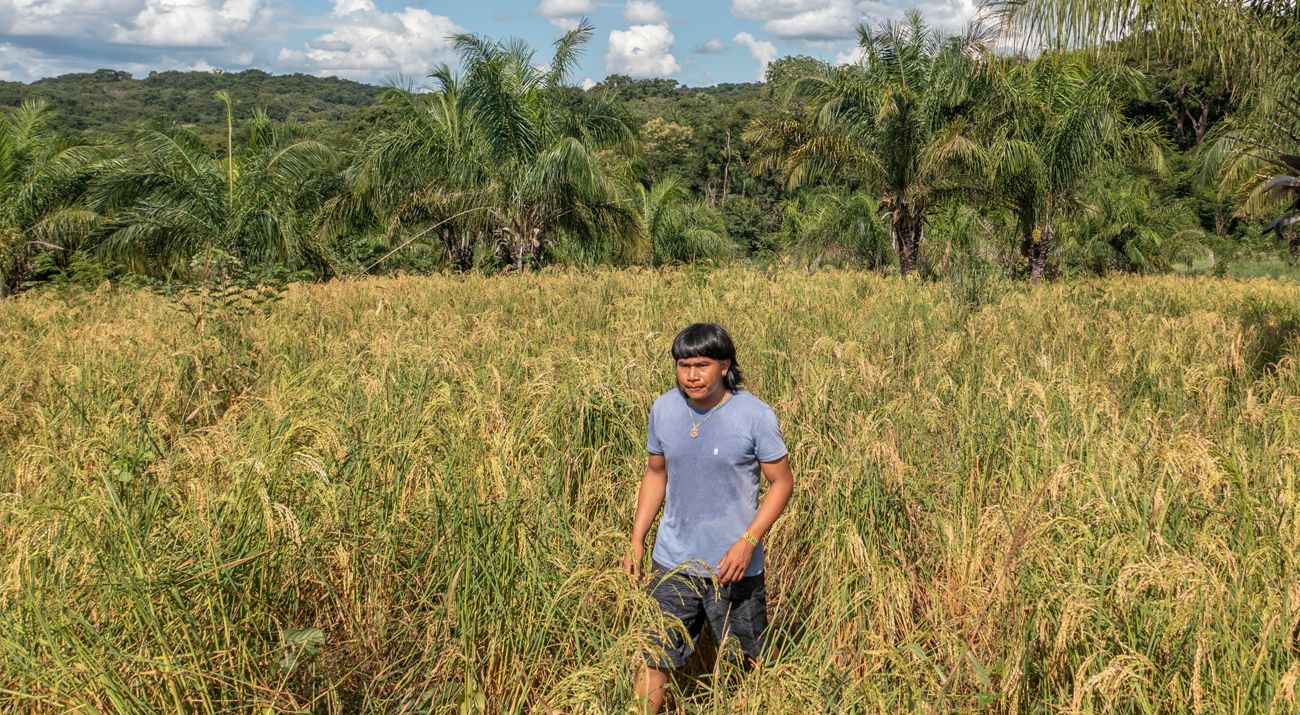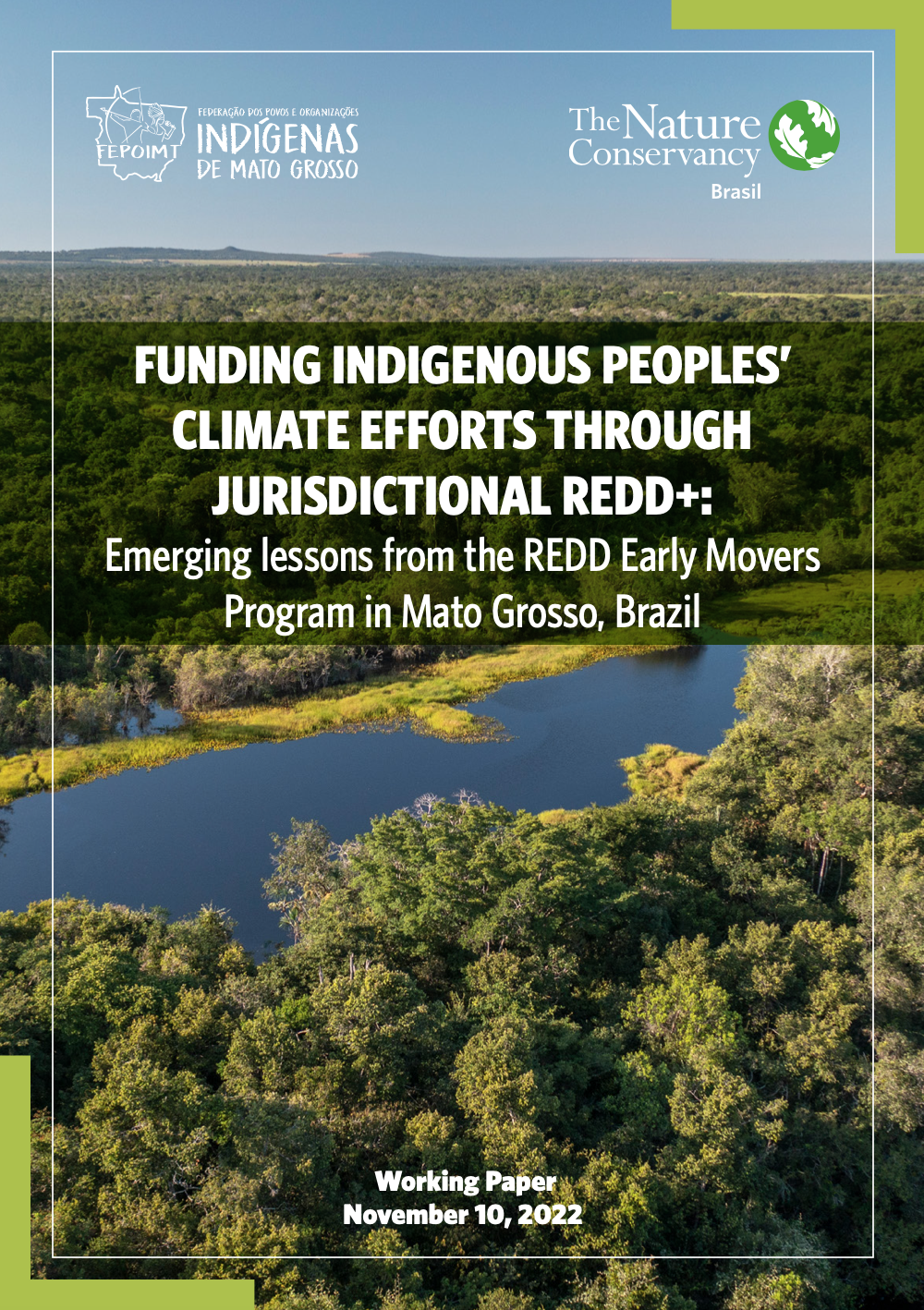Funding Indigenous Peoples’ Climate Efforts through Jurisdictional REDD+
The pioneering REDD Early Movers Program in Mato Grosso, Brazil, offers lessons for the world
Indigenous Peoples and local communities with recognized forest tenure and management rights are among the best forest stewards in the world: 80% of the world's remaining biodiversity is on Indigenous homelands. Yet, in Brazil, less than 1% of Official Development Assistance (ODA) provided for climate change mitigation and adaptation has been used to directly support forest management and land tenure projects led by Indigenous Peoples and local communities.
To help fill that gap, government-led initiatives, such as Jurisdictional REDD+ programs, offer important tools for the protection of these territories and the people who inhabit them, but they require effective coordination between national and subnational enforcement policies and funding mechanisms in order to work.
REDD+ (Reducing Emissions from Deforestation and Forest Degradation) is a framework created by the United Nations Framework Convention on Climate Change (UNFCCC) to guide land use activities in the forest sector to reduce emissions from deforestation and forest degradation, promote the sustainable management of forests, and preserve and enhance forest carbon stocks in developing countries. In line with Brazil's national efforts on this front, the state of Mato Grosso in 2013 enacted its State REDD+ System (SisREDD+ MT), created to monitor enforcement of the environmental safeguards established by the Cancun Convention. Later in 2017, Mato Grosso formally commenced its REDD Early Movers (REM MT) Program with a contract signing at COP23.
The REM Program is a global initiative that targets countries or regions that have already taken measures to protect forests and provides performance-based payments for verified emission reductions from deforestation prevention. In Brazil, the program is implemented in Mato Grosso and Acre in collaboration with Brazil’s Ministry of Environment.
In partnership with the Federation of Mato Grosso Indigenous Peoples and Organizations (FEPOIMT) and collaboration with the Mato Grosso State Government, The Nature Conservancy has been studying the REM MT, focusing on benefit sharing structures that channel funding to Indigenous Peoples in the state. Despite important differences in legal frameworks, institutional capacities, and other context-specific challenges, stakeholders interested in developing similar programs elsewhere should look to the important insights and lessons learned from Mato Grosso’s experience.
Scaling up climate finance and access to funding mechanisms for Indigenous Peoples and local communities is key to meeting the goals of the Paris Agreement. In TNC’s Working Paper, we identify and analyze key steps and enabling factors, including the Free, Prior and Informed Consent (FPIC) processes, public policy arrangements, and administrative structures, for successful engagement with Indigenous Peoples on benefit sharing and direct access financing in REM MT.
Helcio Marcelo de Souza, IP and LC Strategy Manager at TNC Brazil, explains that "ensuring innovative funding mechanisms can reach and be effectively managed by Indigenous Peoples and local communities is an important way to support the implementation of Indigenous- and Traditional Community-established management plans and priorities and, in turn, helps ensure avoided deforestation of tropical forests". Mr. Souza adds: "Efforts like this can help guarantee social, environmental and territorial rights by supporting more inclusive participation in relevant decision-making processes that directly affect Indigenous Peoples and local communities’ lives, empowering them with more agency over their futures."
Download
Funding Indigenous People's Climate Efforts Trough Jurisdictional REDD+
DOWNLOAD Download the executive summary



